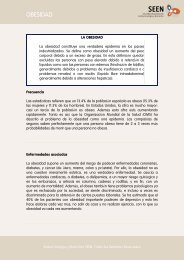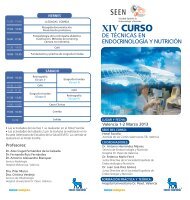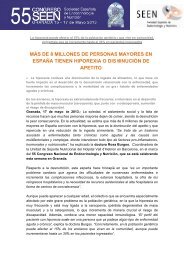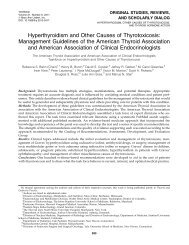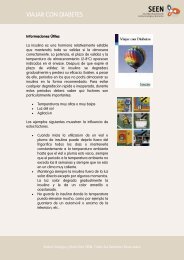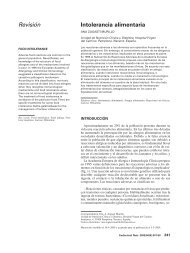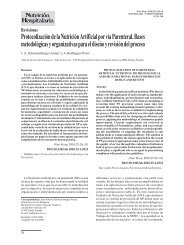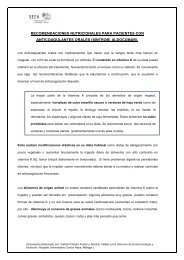Basic Concepts of Fluid and Electrolyte Therapy
Basic Concepts of Fluid and Electrolyte Therapy
Basic Concepts of Fluid and Electrolyte Therapy
Create successful ePaper yourself
Turn your PDF publications into a flip-book with our unique Google optimized e-Paper software.
Kidney: this is the main organ for regulating fluid <strong>and</strong> electrolyte<br />
balance as well as excreting the waste products <strong>of</strong> metabolism, e.g.<br />
urea. In this function, its activity is controlled by pressure <strong>and</strong><br />
osmotic sensors <strong>and</strong> the resulting changes in the secretion <strong>of</strong> hormones.<br />
The modest daily fluctuations in water <strong>and</strong> salt intake<br />
cause small changes in plasma osmolality which trigger osmoreceptors.<br />
This in turn causes changes in thirst <strong>and</strong> also in renal<br />
excretion <strong>of</strong> water <strong>and</strong> salt. If blood or ECF volumes are threatened<br />
by abnormal losses, volume receptors are triggered (see below) <strong>and</strong><br />
override the osmoreceptors. In the presence <strong>of</strong> large volume<br />
changes, therefore, the kidney is less able to adjust osmolality,<br />
which can be important in some clinical situations.<br />
Water<br />
Organs, which sense the changes in osmolality <strong>of</strong> plasma<br />
(osmoreceptors), are located in the hypothalamus <strong>and</strong> signal<br />
the posterior pituitary gl<strong>and</strong> to increase or decrease its secretion<br />
<strong>of</strong> vasopressin or antidiuretic hormone (ADH). Dilution <strong>of</strong><br />
the ECF, including plasma, by intake <strong>of</strong> water or fluid <strong>of</strong> osmolality<br />
lower than plasma, causes ADH secretion to fall, so that<br />
the distal tubules <strong>of</strong> the renal glomeruli excrete more water <strong>and</strong><br />
produce a dilute urine (this dilution requires the permissive<br />
effect <strong>of</strong> glucocorticoid upon the distal tubules <strong>and</strong> is, therefore,<br />
lost in adrenal insufficiency - one <strong>of</strong> the reasons for the<br />
hyponatraemia <strong>of</strong> Addison’s Disease). Conversely, dehydration<br />
causes the ECF to become more concentrated, ADH secretion<br />
rises <strong>and</strong> the renal tubules reabsorb more water, producing a<br />
concentrated urine. In response to dehydration, the normal<br />
kidney can concentrate urea in the urine up to a hundred-fold,<br />
so that the normal daily production <strong>of</strong> urea during protein<br />
metabolism can be excreted in as little as 500 ml <strong>of</strong> urine.<br />
16




